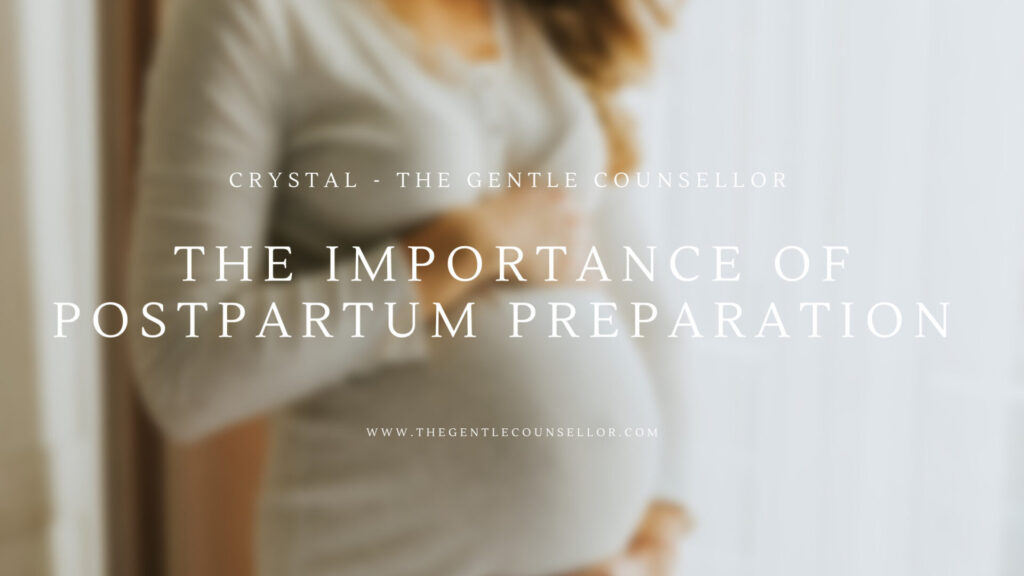
You're probably going to have a lot of questions after you give birth. And it's important to ask them because most people don't know what they're doing. But one thing I didn't anticipate was how challenging it would be emotionally. After having my baby, I felt like I needed time alone; but then I realised that wasn't enough! In this blog post, we'll discuss the importance of postpartum preparation: how taking steps before childbirth can make those first few days easier on both the birthing parent and baby alike!
After giving birth you will need time to recover.
After giving birth you will need time to recover.
First and foremost, you need to recover physically. Your body has undergone an enormous change and it needs rest and sleep. You will also have a lot of visitors who want to see the baby (and their new grandchild). It can be overwhelming at first, but if you give yourself some space and focus on just getting through each day then it will go faster!
You might have some unexpected challenges
You planned for the birth and you think that's the end, but in reality, once you bring a baby home - a lot of things change.
- You may experience emotional challenges.
- You might feel physically exhausted, which could lead to sleep deprivation and other health problems.
- You might find that your finances are tight or even broke; if you haven't been able to budget well before having a baby.
- Your relationship with your partner may be strained by the demands of parenthood; if so, this can cause problems in their ability to provide care for themselves and their family members (if there is one).
- Social interactions may become more difficult as people adjust their schedules around those who have been caring for children since birth—which could lead them to feel isolated from friends and family members who are not parents themselves
It's important to take care of your mental health as well as your physical health.
You may feel like you don't have the time or energy for postpartum preparation, but it's important to take care of your mental health as well as your physical health. If you're not sure what to do, talk with a health professional who can help guide you on this journey.
If there's something that scares you about being a new parent, talk about it! Don't be afraid of feeling sad or anxious—it happens all the time! And don't be afraid of feeling guilty when things go wrong; our brains are wired to worry even though those thoughts make us feel worse than they should (think of how much easier life would be if we just let ourselves feel good).
In addition to these tips, there are more ways than ever before in which we can support each other through parenthood: from joining Facebook groups where parents share advice around common issues like chestfeeding/breastfeeding and sleep deprivation; even via text messaging services like WhatsApp so that parents across suburbs can reach out whenever needed without having any excuse of not doing so.
It helps to have support in the days, weeks and months after giving birth.
Postpartum support is crucial in the days, weeks and months after giving birth. You may feel alone or overwhelmed, but it's important to remember that you're not alone. There are many resources available for postpartum preparation:
- Family members and friends can be invaluable during this transitional period. They can help with baby care tasks like changing diapers and feeding your newborn, as well as offer emotional support if needed.
- A postpartum doula will guide how best to care for your new family member(s). These professionals come equipped with all kinds of useful information about nutrition, sleep patterns and bonding techniques so you don't have to do any guesswork when it comes down time sharing responsibility with others around them!
- Postpartum support groups allow parents who've recently given birth to meet other people with uteruses who've been through similar experiences so they won't feel alone anymore (or even worse - ashamed!).
Take steps before childbirth to make sure the postpartum period is a little easier on you.
With the help of your midwife and obstetrician, you can prepare yourself for the postpartum period. Your plan should include:
- Having someone around to help you care for yourself during pregnancy and after birth
- Creating a support network that will keep you from feeling alone or isolated
If you're pregnant and thinking about having a baby, it's important to think of the postpartum period as well.
Want to know the 4 pillars of care for your postpartum preparation? Listen in on my conversation with De from Mama Nourished Co.